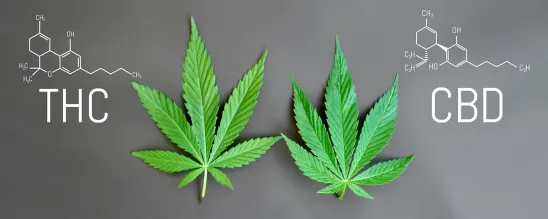KEY TAKEAWAYS:
-
A pending U.S. Tax Court case presents an interesting theory to preclude the federal income tax disallowance of all deductions of a marijuana business.
-
The theory rests on a provision in the 2017 Tax Cuts and Jobs Act that permits small taxpayers to use a simplified inventory accounting method for tax purposes.
-
Legislation pending in Congress would remove marijuana from the list of substances in the Controlled Substances Act, resulting in repeal of the income tax disallowance of deductions for marijuana businesses.
For the last 40 years, marijuana businesses were prohibited from deducting business expenses in their federal income tax returns. After a brief victory in the Tax Court in Jeffrey Edmondson v. Commissioner,[1] allowing an illegal drug dealer’s business deductions for office rent, a weight scale, packaging, and automobile expenses, Congress amended the Internal Revenue Code in 1982 to deny illegal drug dealers all business deductions and credits. The amendment provides that taxpayers carrying on a business of trafficking in controlled substances prohibited by federal or state law are not allowed to deduct costs to compute their taxable income or claim credits against their tax liability.[2] Included in controlled substances is marijuana.
Since 1982, many states have legalized medical and recreational marijuana, but federal law is unaffected by legislation in these states. Federal income tax deductions for marijuana producers and distributors remain disallowed. Nonetheless, a taxpayer now has expressed a new and interesting theory to avoid the effects of the deduction disallowance.
Currently pending in the Tax Court is Alternative Therapies Group, Inc. v. Commissioner.[3] The taxpayer, a marijuana business, alleges that a provision in the 2017 Tax Cuts and Jobs Act that simplifies the tax accounting method for inventories authorizes it to take into account expenditures recorded in its books as “cost-of-goods sold,” which bypasses the disallowance of “deductions.”
The simplified inventory accounting method on which the taxpayer relies must "conform [ ] to such taxpayer's method of accounting reflected in an applicable financial statement of the taxpayer with respect to such taxable year or, if the taxpayer does not have any applicable financial statement with respect to such taxable year, the books and records of the taxpayer prepared in accordance with the taxpayer's accounting procedures."[4]
The taxpayer used the second alternative—the books and records of the taxpayer prepared in accordance with the taxpayer's accounting procedures. The simplified inventory accounting method is available to a “small” business. A business is small if has gross receipts that do not exceed $25 million, adjusted annually for inflation, for the preceding three years.[5] A small taxpayer also may use the cash method of accounting (income items are included in gross income when received and expenditures are deducted when paid), which is a departure from the general rule that taxpayers with inventories must use the accrual method of accounting.[6]
The taxpayer in Alternative Therapies grew and harvested marijuana and manufactured marijuana products. It paid direct and indirect expenses for the growth and cultivation activities. Its Tax Court petition alleges that just like any other small business, it is entitled to use the new simplified books and records inventory method and the cash method of accounting for its inventory. The taxpayer’s books and records and its tax return included $2 million for cost-of-goods sold, which the IRS disallowed. This amount is in issue in the pending case.
Cost-of-goods sold decreases gross receipts. The resulting amount is gross income (gross profit). Allowable deductions are subtracted from gross income. The tax law distinguishes between cost-of-goods sold and deductions because federal tax law cannot disallow cost-of-goods sold. The United States Constitution authorizes a “tax on incomes.”[7] A tax that does not allow an “above-the-line” decrease (offset) in gross receipts for cost-of-goods sold would be an unconstitutional gross receipts tax. As a result, federal tax law disallows only “below-the-line” deductions from the “gross profits” of a marijuana business.
The taxpayer’s petition alleges that its accounting procedures properly offset gross receipts from sales with cost-of-goods. The taxpayer’s books and records apparently maintained an inventory account that capitalized the direct and indirect costs that it paid to produce and distribute marijuana products. When the taxpayer sold its products, its books and records entered the amount of the sales as gross receipts and offset the amount of gross receipts with the cost of the inventory that it sold.
Clearly, Congress can amend the tax law to move an expenditure from a disallowed below-the-line deduction to an allowable above-the-line cost-of-goods sold offset. The amendment that accomplished this transformation, according to the taxpayer in Alternative Therapies, is the simplified inventory accounting method.
The IRS theory of disallowance undoubtedly is that the 2017 enactment of the simplified inventory accounting method did not implicitly repeal the 1982 enactment prohibiting marijuana businesses from deducting business expenses. The Treasury Department generally expressed this theory in a regulation published in 2020 to explain the simplified inventory accounting method.[8] The IRS theory would rely on the rule that implicit statutory repeals by later enactments are not favored unless the intention of Congress is clear and manifest.[9] The regulation appears to rest on a nonexistent statutory provision, which makes its validity problematic.
The issue in Alternative Therapies may devolve to whether the simplified inventory accounting method permits the taxpayer to define its cost-of-good sold in its accounting procedures. The petition does not disclose the specific costs in the taxpayer’s cost-of-goods sold the IRS rejected, asserting only that the taxpayer paid direct and indirect costs as a producer to cultivate and produce marijuana. If that can be proved, the taxpayer has a substantial argument that the costs were includable in costs-of-goods sold under the simplified inventory accounting method and could not, because of constitutional constraints, be subject to disallowance as deductions.
The most recent marijuana deduction disallowance case is Lord v. Commissioner.[10] In that case, the taxpayer, a marijuana cultivator, processor, and distributor, unsuccessfully argued that deductions for accelerated depreciation[11] and bonus depreciation[12] that it claimed for a tax year predating enactment of the simplified inventory accounting method should be included in its cost-of-goods sold. These depreciation deductions were capitalized to inventory under the uniform capitalization rules.[13] The rules provide that even if a taxpayer’s books and records treat these depreciation costs as current expenses, they nonetheless are not currently deductible for tax purposes, must instead be added to inventory, and must be released when the goods to which they relate are sold. The uniform capitalization rules expressly state that a cost that was not deductible for any taxable year is not transformed into a cost that can be included in cost-of-goods sold. For that and other reasons, the taxpayer in Lord lost the case.
Administrative Procedure Act: The Tax Court petition in Alternative Therapies also alleges that the IRS has an administrative practice of denying marijuana growers the ability to report cost-of- goods sold under the simplified inventory accounting method, and that the practice is invalid because the IRS did not provide notice and an opportunity to comment on the practice as required by the Administrative Procedure Act. This IRS guidance apparently is included in an unpublished IRS audit guide for the marijuana industry. Taxpayers have prevailed recently in cases in which they proved that the IRS published an administrative rule with the force and effect of law that was not first submitted for public notice and taxpayer comment.[14]
Pending Legislation: The penultimate paragraph in the Lord opinion announces that in the absence of legislation, the Tax Court will strictly enforce the 1982 marijuana disallowance statute. Now pending in Congress is a bill that would remove marijuana from the list of substances under the Controlled Substances Act, resulting in repeal of the income tax disallowance of deductions and credits for marijuana businesses.[15] Also in the bill is imposition of a federal excise tax on marijuana. The bill passed in the House on April 1, 2022, but the Senate is working on its own bill. Enactment consequently remains questionable since 60 Senate votes may be required for passage, and, in the meantime, the Tax Court will continue to take the position that it is not responsible to solve the technical tax issues that the deduction disallowance presents.
ENDNOTES
[1] T.C. Memo. 1981-623.
[2] IRC §280E.
[3] No. 2022-8668 (Jan. 7, 2022).
[4] IRC §471(c)(1)(B)(ii).
[5] IRC §448(c)(1).
[6] IRC §448(b)(3).
[7] U.S. Const. 16th Amend.
[8] Treas. Reg. §1.471-1(b)(6)(i).
[9] National Ass'n. of Home Builders v. Defenders of Wildlife, 551 U.S. 644, 662 (U.S.,2007).
[10] T.C. Memo. 2022-14 (Mar. 1, 2022).
[11] IRC §168(a).
[12] IRC §168(k).
[13] IRC §263A.
[14] Mann Construction, Inc., v. United States, 2022WL 619822 (6th Cir. Mar. 3, 2022) (IRS Notice invalid); Liberty Global, Inc. v. United States, No.1:20-cv-03501-RBJ (Fed. Dist. Ct. Col. Apr. 4, 2022) (temporary regulation under IRC §245A invalid).
[15] Marijuana Opportunity Reinvestment and Expungement (MORE) Act (117th Cong., H.R. 3617).






 />i
/>i
